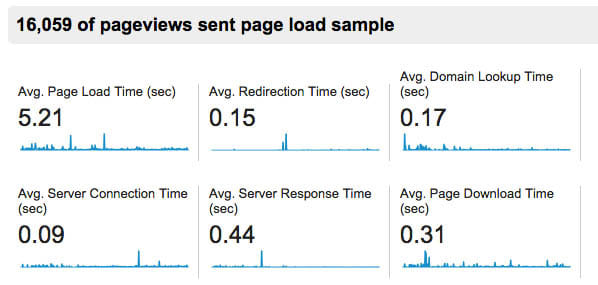4 Important Factors to Consider When Choosing Shared Web Hosting

Natalia Diatko
Posted on July 31, 2019

When they have the task of choosing shared web hosting, most people focus on only one aspect of it: affordability.
Admittedly, good shared web hosting is one that does not cost a fortune. But is it the only factor that should be taken into account?
Let me take a look at the very concept of “a great hosting provider”.
What is it supposed to be like?
What are the key aspects of the notion?
First, its servers, i.e. hosting, should work. (It is obvious, indeed.) If it does not, you simply cannot use your website. Without access to your page, your audience will not be able to find you on the net and actually buy from you.
So, simply working can be considered a criterion. There are hosting providers out there that are down more often than not!
Let me think of what makes excellent hosting performance.
There are two key things: uptime and loading time. That is, how much time the page is up, and how fast it loads.
Second, you should not be left to your own devices, so having someone representing the company can be of use.
So the second factor is customer support.
Finally, price tags matter. If you cannot afford it, you won’t be able to use such services.
All in all, when choosing shared web hosting, the most important factors to consider are:
- Uptime
- Loading speed (Response)
- Customer support
- Price.
Let me take a closer look at each of them.
Uptime
Uptime. The thing that deserves to be emphasized in this article.
It is a very important factor to consider when choosing a shared web hosting, due to two reasons.
- If uptime leaves much to be desired, your audience will not be able to access your page and contact you.
- Uptime is quite an unstable characteristic. For example, it can be excellent for about a year, and then BANG! your website is down for several hours.
That's why you should try to find information about how good the hosting provider of your choice is. And not only how good it's been only recently, but over the course of a year or longer. By doing so, you will be able to see whether recent problems are a temporary issue. Or, conversely, that it has been going downhill steadily for some ten months.
Uptime can be affected by a variety of factors. Here are some of these.
- Servers being overcrowded (if you use shared hosting);
- Security problems.
Regardless of what they are, choose shared web hosting that is characterized by stability.
Today, quality hosting can boast about 99.998% uptime or even better. 99.970% may seem great too. But even such impressive numbers can translate to dozens of minutes of downtime. Depending on how demanding your website is, it could be a problem. There are pages that are supposed to be available immediately and at any time. In such cases uptime becomes an even more important factor.
Besides doing research and analyzing statistics on long-term performance, you can try another strategy: relying on websites where teams set up test pages and monitor uptime (using a variety of monitoring software) to see how good a particular shared web hosting company is.
Also, there are services that identify to which hosting provider a website belongs and try to monitor its uptime. They regularly check if websites are online, which enables them to provide objective data regarding the uptime of a particular hosting provider.
The good old “read reviews” approach will also do. Be careful, though. Not all of them are posted by real users.
For instance, the most popular hosting forum is webhostingtalk.com.
Using Google, you can search for information about a particular hosting provider and threads in which it is discussed:
site:webhostingtalk.com + "SiteGround"
SiteGround is used here as an example of a hosting company.
Loading speed (Response)
Response time is how long it takes a server to respond, whereas loading time is the total time needed for the server to communicate effectively and the website itself to load. It means that how fast your website is depends not only on how good your hosting provider's equipment is, but also on what content you use. The latter includes errors in code (these prevent the page from loading normally and thus fast) and unoptimized content.
However, if content is something you can adjust, tweaking the server is not possible. That is why response time is one of the first things to pay attention to when analyzing performance statistics of a provider’s servers.
If it is close to 300-400ms, it means the speed is enough. It is a good result, judging from what companies offer these days. Conversely, if it is something around 1,000ms or more, you should think twice. The problem is that some projects can tolerate 1,000ms, while others require something faster. This is because they are more demanding because of how popular they are.
Customer support
Customer support is the place where you interact with the hosting provider. It is them who you will have to contact when (possibly if?) problems occur.
That is why you should try to find out whether the team is available round the clock and what means of communication are available (chat, tickets, phone, etc.).
It is of the utmost importance to be able to access technical support 24/7. Make sure there is not only a Sales Support Chat, but also Tech Support, and that it is available via Live Chat, as it enables you to solve problems fast. When a website enjoys huge traffic, it is crucial to solve them within minutes. That is why a ticket system is not always a fast means of communication.
Also, one more option is to try to contact the team beforehand.
This way you can see if they are helpful and really listen to what you are trying to say. Some companies are notorious for sending robotic messages with no real advice.
Price
There is not much that can be added to it – go for an option that is within your budget. It depends on what kind of a project you want to launch.
Be careful with overly cheap offers, though. The quality will not necessarily turn out to be as appealing as the price tag.
On average, you can find quality hosting for as little as $5 or even less. The price is shaped by features included, bandwidth, extra options and other factors. Another thing to remember is that you should read the details of offers carefully. This is because quite often hosting companies display a great price only to charge you more afterwards, when the "promo month" expires.
This is also the reason why price matters. When planning your budget, think about how much you will be charged after the initial period. Beware of upsells, too!
Each of the four factors is important to consider when choosing a shared web hosting. I ordered them by priority. As a rule, the choice of those new to the field is based on only one factor, that is affordability.
It is understandable. As assessment of uptime and response is not always possible, you should look for third-party services specializing in uptime monitoring. Before paying for hosting services, check Live Chat to see how good technical support is. It will be very important for you in case issues arise.
Do research and take all these factors into account when looking for a nice dwelling for website.

Posted on July 31, 2019
Join Our Newsletter. No Spam, Only the good stuff.
Sign up to receive the latest update from our blog.




